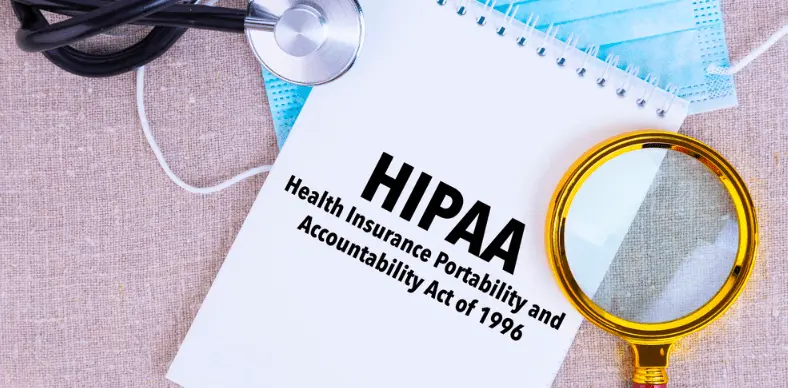In the realm of healthcare, the Health Insurance Portability and Accountability Act (HIPAA) stands as a cornerstone for protecting patients’ privacy and ensuring the security of their medical information. Yet, despite its critical importance, HIPAA often finds itself shrouded in myths and misconceptions. From misunderstandings about its scope to confusion regarding compliance requirements, navigating the world of HIPAA can be daunting. In this article, we embark on a journey to debunk common HIPAA myths, shedding light on its true essence and implications.
HIPAA Only Applies to Doctors and Hospitals
One prevalent misconception about HIPAA is that it exclusively pertains to healthcare providers such as doctors and hospitals. While these entities are indeed subject to HIPAA regulations, the scope of the law extends far beyond clinical settings. HIPAA compliance is mandatory for a broad range of organizations that handle protected health information (PHI), including health insurers, healthcare clearinghouses, billing companies, and business associates. Any entity that accesses, stores, or transmits PHI must adhere to HIPAA guidelines, regardless of its size or function.
HIPAA Prohibits the Sharing of Health Information
Another common myth is that HIPAA forbids the sharing of health information under any circumstances. In reality, HIPAA is designed to strike a balance between protecting patients’ privacy rights and allowing for the necessary exchange of medical information for treatment, payment, and healthcare operations.
Healthcare providers are permitted to disclose PHI to other healthcare professionals involved in a patient’s care, as well as to insurance companies for billing purposes. Moreover, HIPAA includes provisions for sharing information in situations such as public health emergencies or when required by law enforcement agencies.
HIPAA Compliance Guarantees Data Security
While HIPAA sets forth stringent requirements for safeguarding PHI, compliance alone does not ensure bulletproof data security. Many organizations mistakenly believe that adhering to HIPAA regulations absolves them of responsibility in the event of a data breach. However, maintaining compliance is just one aspect of a comprehensive cybersecurity strategy.
Protecting sensitive medical information requires ongoing risk assessment, robust encryption protocols, employee training, and proactive measures to detect and respond to security threats. Organizations must adopt a holistic approach to data security that goes beyond mere regulatory compliance.
HIPAA Violations Are Rarely Enforced
Contrary to popular belief, HIPAA enforcement is a serious matter, and violations can result in significant penalties. The Department of Health and Human Services’ Office for Civil Rights (OCR) is tasked with enforcing HIPAA regulations, and it has demonstrated a commitment to holding non-compliant entities accountable.
Depending on the severity of the violation, penalties can range from fines to criminal charges, potentially leading to reputational damage and legal repercussions for the offending organization. As such, healthcare entities must prioritize HIPAA compliance and invest resources in maintaining adherence to its provisions.
HIPAA Compliance Is a One-Time Effort
One of the most dangerous misconceptions about HIPAA is the notion that achieving compliance is a one-time endeavor. In reality, HIPAA compliance is an ongoing process that requires continuous monitoring, assessment, and adaptation to evolving threats and regulatory changes. Healthcare organizations must regularly review and update their policies and procedures to ensure alignment with HIPAA requirements, as well as conduct periodic risk assessments to identify vulnerabilities in their security posture. Additionally, employee training and awareness programs are essential for fostering a culture of compliance and mitigating the risk of inadvertent breaches.
HIPAA Is an Obstacle to Innovation and Collaboration
Some critics argue that HIPAA stifles innovation and hampers collaboration by imposing strict regulations on the sharing of health information. However, this perspective overlooks the fact that HIPAA includes provisions for facilitating data exchange in a secure and standardized manner. Through mechanisms such as the HIPAA Privacy Rule’s provisions for de-identification and the Health Information Technology for Economic and Clinical Health (HITECH) Act’s promotion of electronic health records (EHRs).
HIPAA aims to strike a balance between privacy protection and interoperability. Moreover, adherence to HIPAA standards can foster trust among stakeholders and promote innovation in healthcare technology and data analytics.
HIPAA Is Just a Set of Guidelines, Not Law
Some individuals believe that HIPAA is merely a set of voluntary guidelines rather than a legally binding framework. This myth often leads to organizations overlooking the serious legal implications of non-compliance. In reality, HIPAA is a federal law enacted by the United States Congress in 1996, and compliance is mandatory for covered entities and their business associates.
Failure to adhere to HIPAA regulations can result in significant penalties, including fines, legal sanctions, and reputational damage. Understanding HIPAA as a legal obligation rather than optional guidance is crucial for healthcare entities to prioritize compliance efforts.
HIPAA Requires Consent for Every Disclosure of PHI
There is a common misconception that HIPAA mandates obtaining patient consent for every disclosure of protected health information (PHI). While patient consent is important for certain types of disclosures. Such as for marketing purposes or sharing PHI with third parties not involved in treatment. HIPAA allows for disclosures without consent in many circumstances.
For instance, healthcare providers are permitted to share PHI for treatment, payment, and healthcare operations without obtaining explicit consent from patients. Understanding the nuances of when consent is required and when it is not can help healthcare organizations navigate HIPAA compliance more effectively.
Also Read:
Conclusion:
In conclusion, navigating the complexities of HIPAA requires dispelling common myths and misconceptions that cloud its true purpose and implications. By understanding the scope and intent of HIPAA regulations. Healthcare organizations can take proactive steps to ensure compliance, protect patient privacy, and safeguard sensitive health information.
Moreover, by embracing a culture of continuous improvement and innovation. Stakeholders can leverage HIPAA as a catalyst for driving positive change in the healthcare landscape. As technology continues to reshape the healthcare industry, maintaining vigilance and adherence. To HIPAA principles will remain paramount in safeguarding the integrity of patient data and preserving trust in the healthcare ecosystem.









